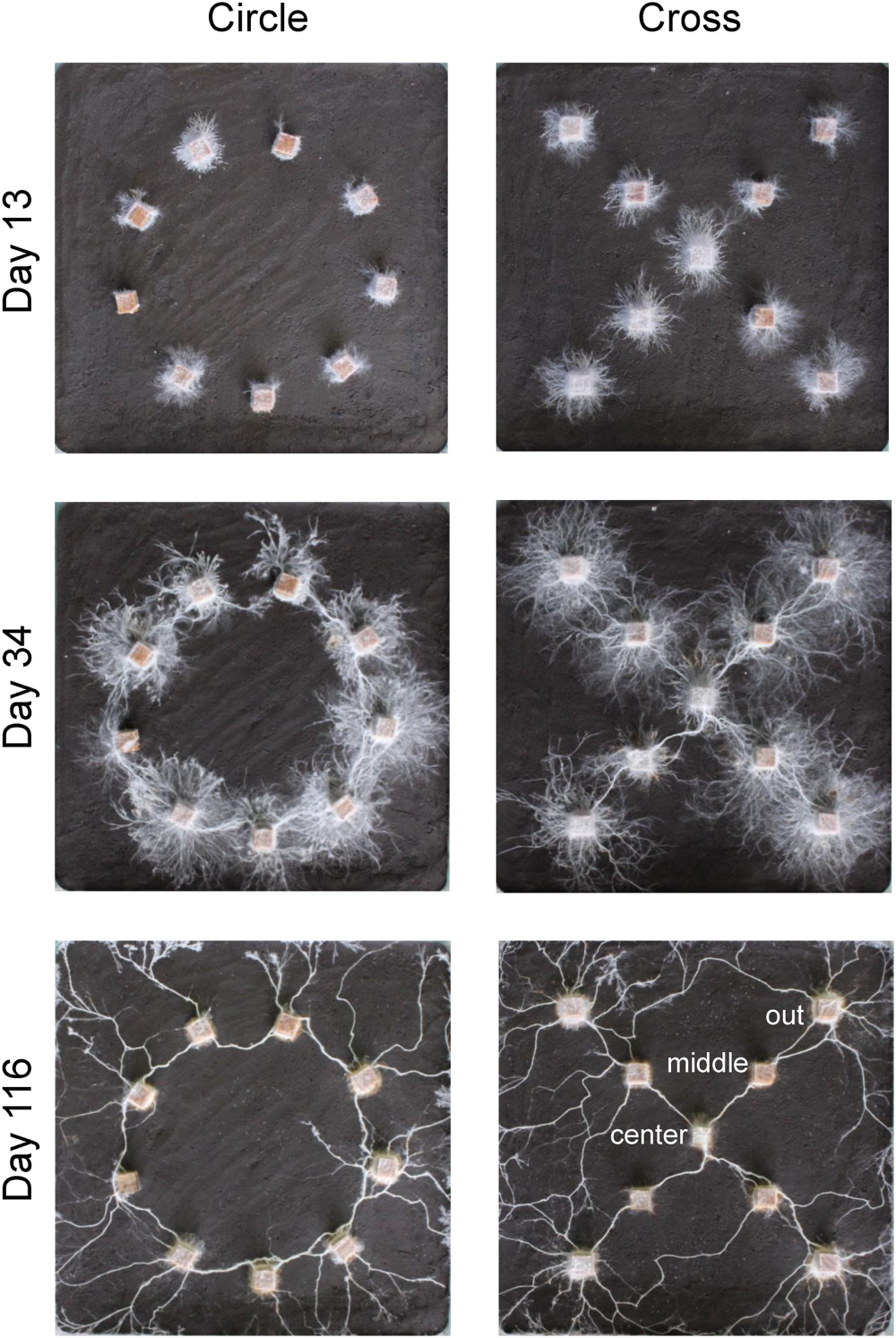Does fungus think? A curious new study from researchers at Tohoku University and Nagaoka College has provided food for thought, as it showed that the activity of a wood-decaying fungus changed depending on the formation its food sources were placed in.
The secret life of fungi unfolds underground where hyphae form spindly threads of mycelium that stretch out like vast networks transporting nutrients and information. Some have compared it to a neural network, but does it “think”? We know that slime molds – gloopy colonies of eukaryotic organisms – can assess their environment and make decisions about food sources, but what about fungi?
This latest study wanted to investigate what happened when the mycelial network of the wood-decaying fungus Phanerochaete velutina was faced with food sources in different formations. They did this by placing wooden blocks that were colonized with fungus into either a Circle or Cross formation, and then left them to do their thing for 116 days.
The experimental design meant they could assess hyphae activity in two ways: visible connections that could be seen because the layer of soil was so thin, and the degree of decay in the wooden blocks that was measured by how much weight they lost from start to finish. Reviewing the fungi’s growth in this way revealed distinct differences between the Circle and Cross conditions.
For the Circle arrangement, the mycelium network was pretty even all around, but in the Cross it was most intensive on the outermost blocks. Furthermore, there wasn’t much difference in the rate of decay for the Circle’s wood blocks, but again, it was the four outside blocks on the Cross that saw the most decay.

Fungal mycelial networks connecting wood blocks arranged in circle (left) and cross (right) shapes.
Image credit: ©Yu Fukasawa et al.
It’s possible this is because the Cross’s outermost blocks acted as “outposts” for foraging, absorbing water and nutrients from the soil. Meanwhile, the inner five blocks that had the fewest connections may have been acting a “pathway” for the mycelium rather than doing the absorbing themselves.
There wasn’t a significant difference in how much hyphae was present across the Circle and Cross experiments, which indicates that the way the fungi broke down the wood blocks wasn’t associated with the production cost of its mycelium. Instead, it seems to be associated with how the mycelium network developed based on the wood blocks’ formations.
This suggests the fungi could share information across its entire mycelium network and alter the direction of growth accordingly. As to whether this amounts to thinking? It’s a tricky question in itself.
“Whether or not mycelium is conscious is irrelevant in this context, as cognitive processes function independently of consciousness, even in the brain,” wrote the authors. “If we define cognition as ‘the sensory and information-processing function of autonomous biological systems,’ the difference in network structure and wood decay function that was demonstrated by the fungal mycelia between the Circle and Cross arrangements might be a form of recognition by fungi.”
Many questions remain as to why exactly these differences between the Circle and Cross occurred, but the study brings us a step closer to understanding primitive intelligence in brainless organisms, and how this can influence the wider ecosystem. One thing that’s for certain, however, is that these subterranean fungal aliens are more talented than we give them credit for.
“You’d be surprised at just how much fungi are capable of,” said Yu Fukasawa of Tohoku University in a statement. “They have memories, they learn, and they can make decisions. Quite frankly, the differences in how they solve problems compared to humans is mind-blowing.”
The study is published in the journal Fungal Ecology.
Source Link: Fungi Throw Shapes, Raising Questions About Primitive Intelligence In Brainless Organisms